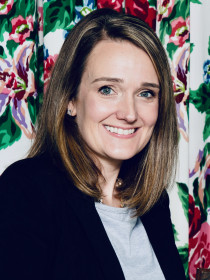
Kristy L. Ouellette
Connect with Kristy
About Kristy
Ouellette's research focuses on the the impact of the 4-H youth development program on first generation members. Through the lens of social capital, Ouellette explores the connections and intentional pathways young people who engage in PYD experience. Overarching themes in Ouellette's writings include, outreach to undeserved audiences, expanding pathways for youth, social and cultural capital and first generation youth. Ouellette serves as a 4-H Thriving Regional Champion, a member of the National Association for 4-H Youth Development Professionals, American Educational Research Association and Maine Afterschool Network. She is also a school board member in her local district.
Contributions
In the News
Publications
Identifies best practices for engaging the growing Somali-Mainer population as a volunteer base. Demonstrates that Somali immigrant adults are willing to volunteer for 4-H when the outcome will be a higher academic achievement for their children and when volunteering matches their cultural expectation of helping others. Reports Somali adults' limitations related to their ability to volunteer, particularly language barriers and child-care commitments.
Elaborates on how face-to-face training for Extension volunteers is no longer the only viable delivery mode. Mentions in times of rapid technological advances, we are faced with a plethora of options for offering volunteers the training and support they need.
Re-establishes the profile of the 4-H volunteer and evaluates both the format and content of e-Learning for 4-H Volunteers modules launched in 2006. Finds volunteers from seven states perceived that online modules made learning more convenient and flexible.
Summarizes key aspects of the educational research literature by comparing two prevailing metaphors for learning: acquisition and participation. Develops a definition of learning on the basis of the two metaphors, and discusses the related implications for program and curriculum development, pedagogy, professional development, and assessment of learning.
Examines how for extension educational programs to meet the educational needs of today's youths, families, and communities, Extension needs to expand "what counts" as learning.
Discusses how 4-H is the youth development program of the Cooperative Extension and has identified Science, Technology, Engineering, and Math (STEM) as a national priority. Mentions that conducting STEM education during summer months for hard to reach youth can be a challenge.
Introduces how the flexibility and freedom of afterschool settings can complement and extend the exploration, curiosity, and discovery that are promoted in classroom curricula. Explains that many scientists report that nonschool environments helped spark their passion to pursue a career in science (Gibbons, Bergsman, & Smith, 2008).